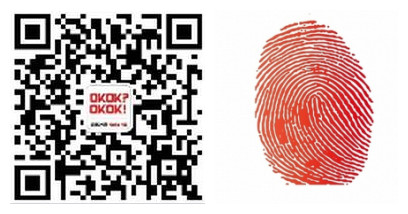
1) dou keyi (都可以)
Dou keyi comes in handy often because there's not really an English equivalent. It roughly translates to "both are okay" or "all are acceptable." Whenever you're given a choice between two perfectly acceptable options, dou keyi just sounds nicer and chirpier than saying "whatever."
Example: A: Do you want to go to the park or just stay in and eat Cheetos today? B: Dou keyi! Those both sound good
2) suibian (随便)
Closely related to dou keyi, suibian is the moody, angsty translation of "whatever." Lacking the positive connotation of dou keyi, it gives an impression more of resignation than enthusiasm.
Example: A: Do you prefer the wood flooring or the linoleum? B: Suibian. I really don't care.
3) meishi/meiwenti (没事/没问题)
The Chinese equivalent of "no problem" comes in two similar but not identical forms. Meishi translates more closely to "no matter" and is used for small things that we can easily look past. Meiwenti is more often used when encountering an actual slight, obstacle, or mistake. They can often be used interchangeably, and most people tend to lean more toward one or the other. And for the Beijingers out there, you may be more accustomed to hearing meishi'r (没事儿) in the hutongs.
Example: A: I'm going to be late to the meeting. B: Meiwenti, we don't really need you anyway.
4) bu zhidao (不知道)
Simply, I don't know, this phrase becomes emblazoned onto the brains of all foreigners in China because we so often use it both in Chinese class and in daily life. It's a phrase we so often repeat that it remains lodged in our everyday vocabulary even long after we depart. One fun tidbit is that this phrase is probably the easiest way to pinpoint where a person learned Chinese, as the pronunciation is heavily influenced by local accents (i.e. "zi-dao" sounds more southern while "zher-dao" sounds more northern).
Example: A: How does Einstein's theory of relativity work? B: Bu zhidao, I suck at science.
5)meiyou (没有)
Remember how hilarious it was the first time you went to a Subway sandwich shop in China and you snickered when you finally got the chance to say, "meiyou mayo"? Seems a lot less funny now, right? Now it's just an alternative way to say "don't have" that you can't seem to shake from your tongue.
Example: A: Do we have any mayonnaise left? B: Meiyou, I used it all to make cole slaw.
6) zhende ma? (真的吗)
Every expat in China knows at least one other annoying expat who constantly repeats the phrase, "zhende ma?" in place of the English meaning, "really?" If you don't, then that person is probably you.
Example: A: Jerry just go into Harvard on a full-ride scholarship. B:Zhende ma? I thought that guy was an idiot.
7) xiao pangzi (小胖子)
In most English-speaking societies, it's impolite to call someone else's child fat. But in China, fat kids are just cute, blubbery little xiao pangzis. Literally translating to "little fat person," xiao pangzi is a term of affection rather than an insult. When you're out of China, it's a great way to comment on childhood obesity without sounding crass.
Example: A: Look at that kid eating butter! B: Aw, what a xiao pangzi!
8) wasai! (哇塞)
As a foreigner in China, you probably first heard this exclamation when you either did something really impressive, stupid, or crass. Wasailiterally translates to "wow", but it's way more fun to say.
Example: A: Check out this Youku video of a Beijing traffic jam. B:Wasai! That's really bad.
9) ganbei (干杯)
Toasting friends at parties in another language is one of the best ways to show off how cultured you've become after a two-month study abroad course. It literally translates to "dry cup." Just don't confuse ganbei, which means "cheers," with ganle, which means "bottoms up."
Example: A: Peter finally showed up with the vodka. B: About time!Ganbei!
10) jiayou (加油)
Jiayou literally means "add oil", but the idiom translates more closely to "come on" or "keep going." It's the most common cheer you'll hear in China, so don't be surprised if it slips from your lips while watching the next football game.
Example: A: I can't go on. Leave me here to die. B: You can make it!Jiayou!
11) chabuduo (差不多)
Chabuduo literally translates as "the difference is not much", or in a less wordy way: "similar." While the three characters together have a familiar meaning to most people who have studied Chinese, most of them probably can't remember how to use cha by itself in a sentence
Example: A: What's the difference between Pepsi and Coke? B:Chabuduo, but Pepsi is superior.
http://www.echinacities.com/expat-corner/11-Chinese-Phrases-Youll-Keep-Saying-Long-After-You-Leave-China
Using WeChat? Scan QR Code or Press the Fingerprint Below ↓
--- (Or ADD WeChat ID: OKOKOKOKnet)
